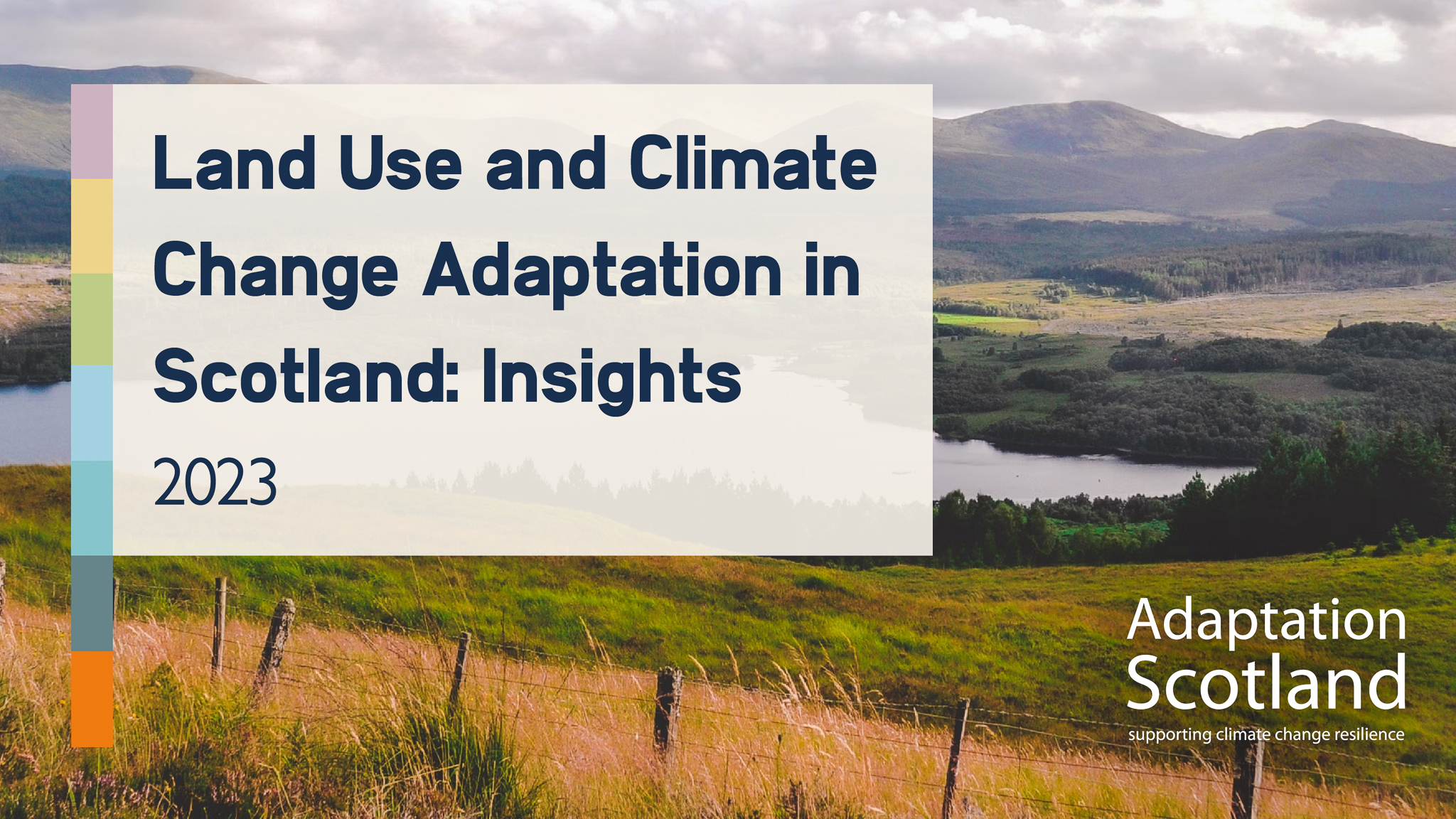Land Use & Climate Change Adaptation in Scotland: Insights report
Tool/Resource CompleteDate added: 04/10/2023

Scotland’s resilience to climate change impacts is closely related to how land is used and owned. Adaptation Scotland's report: “Land Use and Climate Change Adaptation in Scotland: Insights” explores this relationship to inform emerging land and climate change policies and practices.
Land and climate change adaptation
Current level of global governmental actions and policies will lead to a warming of 2.7°C by the end of the century and will also continue to rise after that date (Climate Action Tracker, 2022). In Scotland, this would bring warmer temperatures in all seasons, wetter winters and drier summers, more extreme weather events such as flooding, and sea level rise. This, of course, has implications for the land: the ability of habitats and species to thrive, soil health, impacts for crops, livestock, and woodlands.
Fundamentally, we're talking about the impact of climate change on the systems that sustain the lives of people and other creatures. Reducing emissions to slow down the pace of climate change is crucial, but adapting to its impacts is also important for the future of land as well as people’s and environmental health and wellbeing.
Our approach
Starting in Autumn 2022, Sniffer, in producing this report, reviewed existing research and media publications, and draft policies on land and climate adaptation and resilience. We then held 42 in-depth semi-structured online interviews. We designed the questions and the approach to the interviews in close collaboration with Scottish Government’s Adaptation Team and Scottish Land Commission.
We designed the engagement to include participants from those with the power to make decisions, to those who influence decision-making, to those mainly receiving information and typically having little to no influence. We also had a wide sectoral spread, with participants representing some of the largest community, public and private estates, key land and climate membership organisations and policy makers from different sectors; public, private, third sector, land owning and non-landowning groups.
The interviews explored the relationships between land management, land ownership and climate change, both now, and in the future, looking at how these may need to change to make sure everyone is resilient to climate change impacts. We used an inductive (emergent) approach to analyse the data, developing the themes as they emerged from the interviews.
Policy context
Scotland is now undergoing a period of significant policy change in relation to land use. There are emerging policies, such as new Land Reform Bill due to be laid in from of the Parliament by the end of 2023, forthcoming Agriculture Bill (which will set out the new agriculture support system post-CAP), Scottish Climate Change Adaptation Programme (which is the key adaptation policy in Scotland) as well as the related Just Transition Plan for Land Use and Agriculture that will all shape how the land is Scotland is owned and used.
The report offers a series of priorities to be considered in these policies as well as by organisations and groups involved in land use. These are intended to support policy development to ensure people and the environment in Scotland are adapting to the impacts of climate change.
Findings
The report itself offers a wealth of insights into how climate adaptation and net-zero approaches are perceived by various stakeholders, what are the current adaptation measures in land-use context and how existing policies and decision-making play a role in it. Based on these insights, we identified priorities for enhancing climate change adaptation, specifically in the context of changing land use and ownership in Scotland. These priorities and suggested focus areas will be of interest and relevant to the Scottish Government and others, such as membership organisations who work with land-based businesses and communities, estates, farmers, development trusts, who are involved in land-related work and decisions.
The priorities are presented under the three themes that echo the research findings and analysis:
- Priority 1: Improving knowledge and resources for adaptation
- Priority 2: Connecting climate and land-related policies’ intentions and delivery
- Priority 3: Working towards more fair and just decision-making in land use
Explore the report here:
Land Use and Climate Change Adaptation in Scotland: Insight…